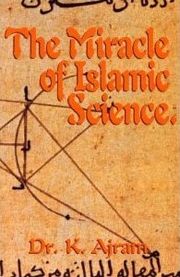From WikiIslam, the online resource on Islam
Jump to navigation
Jump to search
|
|
| Line 1: |
Line 1: |
| <noinclude>Also see: [[Template:Pictorial-Islam]]</noinclude><!-- HELP NOTES: Each option tag handles one random story --><choose> | | <noinclude>Also see: [[Template:Pictorial-Islam]]</noinclude><!-- HELP NOTES: Each option tag handles one random story --><choose> |
| | |
| | |
| | <option weight="1">{{Pictorial-Islam|1=European Court of Human Rights on Shari'ah Law|2=[[File:European Court of Human Rights logo.svg|330px|link=European Court of Human Rights on Shariah Law]]|3=With the banning of the Welfare Party (Refah Partisi, RP), an Islamist political party in Turkey, and a further sanction in the form of a ban on its leaders sitting in Parliament or holding certain other forms of political office for a period of five years, the European Court of Human Rights determined on July 31, 2001, that "the institution of Sharia law and a theocratic regime, were incompatible with the requirements of a democratic society." ([[European Court of Human Rights on Shariah Law|''read more'']])}}</option> |
|
| |
|
|
| |
|
Revision as of 02:59, 5 January 2014
Also see: Template:Pictorial-Islam
Setting the Record Straight: The Non-Miracle of Islamic Science
|
|

|
|
This is a refutation of Dr K. Ajram's Setting the Record Straight: The Miracle of Islamic Science. The purpose of this analysis is to put the achievements of Golden Age Muslim scientists in the proper perspective; neither denigrating their achievements nor inflating them. All scientific and technological progress is accomplished in progression; Muslim achievements are but links in the chain. Few of the great Muslim scientific achievements stood alone, but were derived by Muslim scientists standing on the shoulders of those who came before them. This analysis also highlights the fatal flaw of the Islamic Golden Age. There were few ‘follow-up’ breakthroughs on the backs of the works of the great Muslim scientists. In effect, the Ummah allowed or encouraged these works to wither on the vine or die stillborn, even before the rise of mysticism at the expense of rational thinking, an event often attributed to al-Ghazzali around the turn of the 12th century. Indeed, it would seem orthodox Islam utterly stifles intellectual reasoning. Therefore, Islam is not the cause of scientific progress during the Golden Age. Many people would say that the Golden Age scientific progress was made in spite of Islam, not because of it. A prime example is the great philosopher-physician Ibn Sina (Avicenna) whose work is constantly referenced by Dr K. Ajram. (read more)
|
|
|
